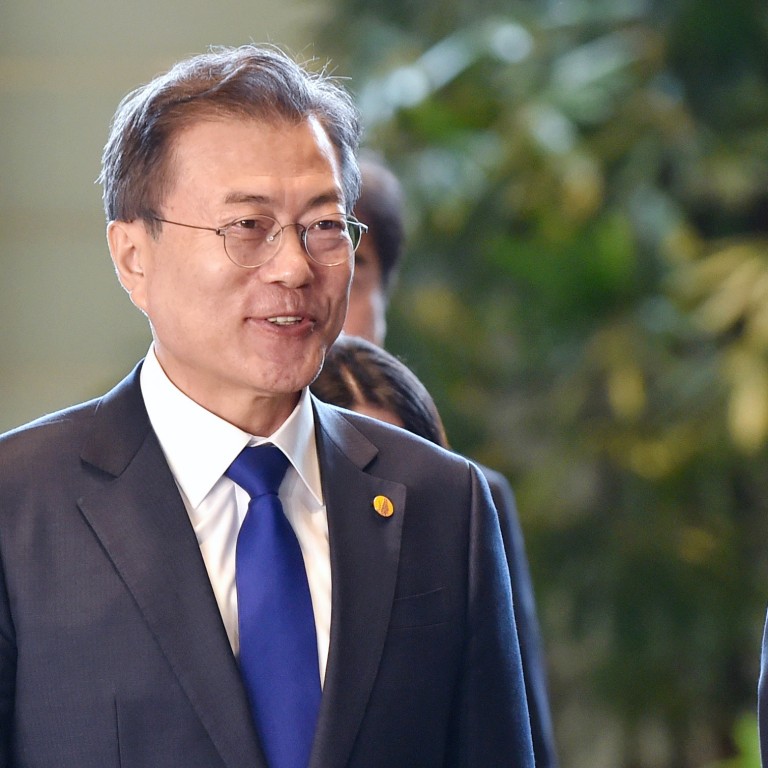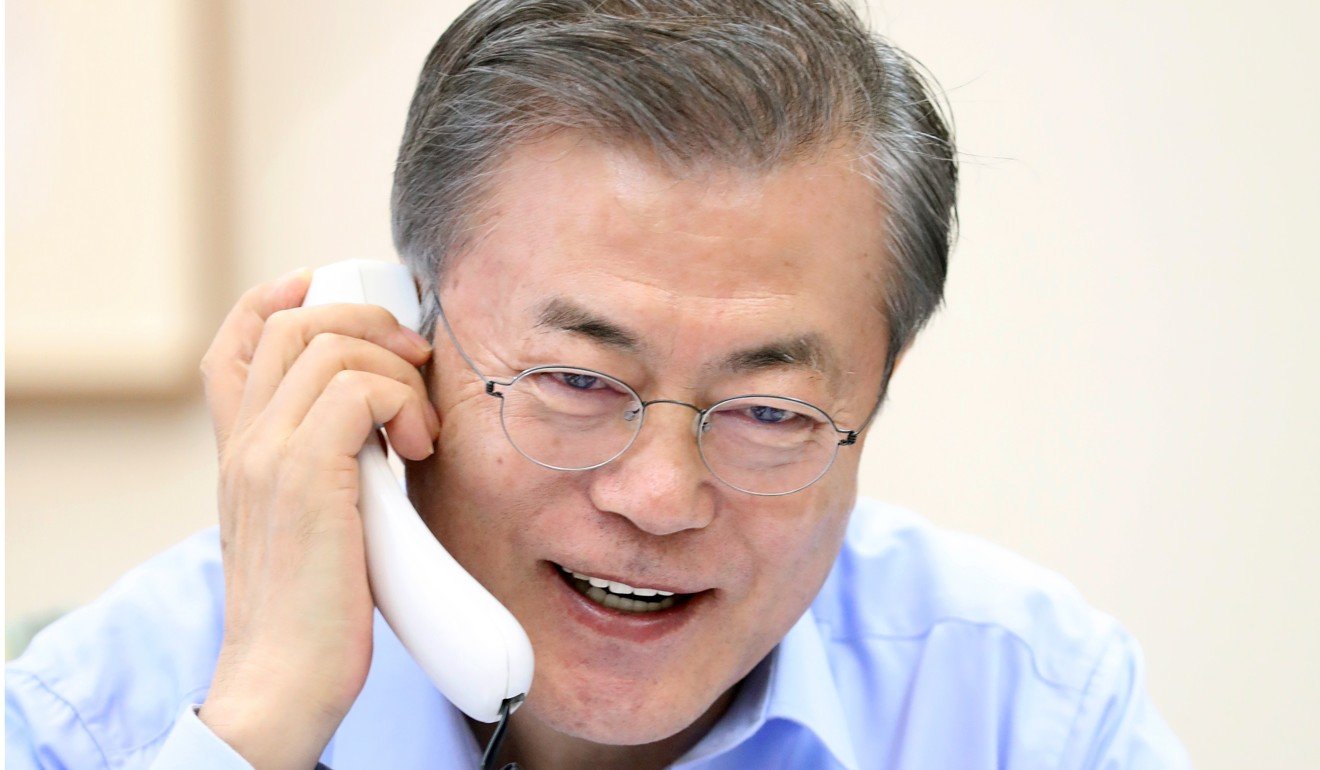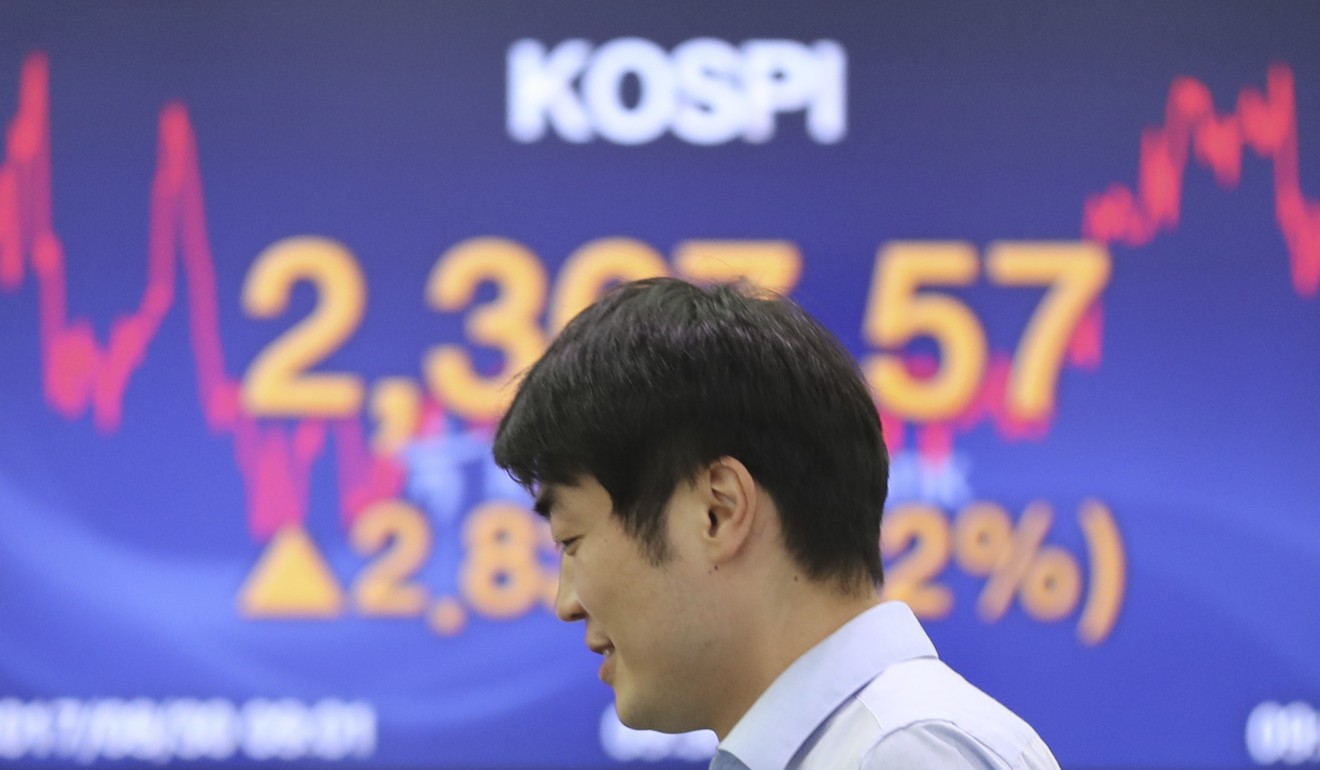
As diplomatic rift between Japan and South Korea deepens, how hard can Seoul afford to push?
- Animosity between the two side has ramped up in recent weeks, with military encounters and legal battles souring ties that were already strained
Relations between South Korea and Japan are at an all-time low and the rift between the two governments could yet deepen in 2019. In the event of further diplomatic unrest, though, Seoul appears the likely loser, given its economic exposure.
Bilateral relations were immediately strained when Moon Jae-in came to power in Seoul in May 2017. Tokyo was wary of his left-wing leanings and concerned that he would offer support and aid to the regime in North Korea. From Tokyo’s perspective, those fears have been borne out.

In November, Moon’s administration invalidated an agreement Tokyo made with his predecessor, Park Geun-hye, to resolve the long-running issue of Japan’s use of wartime sex slaves, referred to as “comfort women”.
Weeks later, South Korea’s Supreme Court ruled Japanese firms could be held liable for forced labour during the years of Tokyo’s colonial rule on the Korean peninsula. The ruling contradicted Tokyo’s position that all compensation claims had been settled by the 1965 treaty that normalised relations between the two countries.
Japan says footage ‘proves’ South Korean warship had weapons lock on aeroplane
The animosity has not subsided in the weeks since. The armed forces of both countries traded accusations over an encounter in the sea that separates the countries. Tokyo claimed a South Korean warship used its fire radar to lock onto a reconnaissance aircraft. Seoul countered that the Japanese aeroplane was flying too low as its ship attempted to help a North Korean vessel in distress and that it did not use its fire control radar.
This has to be the lowest point that I can remember in South Korea-Japan relations
The issue of forced labour was given further impetus on Wednesday when lawyers representing the four South Korean plaintiffs filed for a local court to seize assets of Nippon Steel & Sumitomo Metal. The money would be used to pay 100 million won (US$89,000) compensation to each plaintiff, as ordered by the Supreme Court.
“This has to be the lowest point that I can remember in South Korea-Japan relations, although I don’t actually think that too many Koreans are interested in the case surrounding the former forced labourers,” said Yoichi Shimada, a professor of international relations at Fukui Prefectural University.
“But here in Japan, I can see a mounting distaste against the Korean government, particularly in connection with the radar lock-on incident. That is particularly worrisome.
“Even left-leaning newspapers in Japan, like the Asahi, have condemned South Korea on these issues and the next worry is that the Moon administration will go ahead with extending financial support and aid to the North Korean regime.”

According to Shimada, members of Shinzo Abe’s government are “indignant” about Seoul’s “broken promises”. They have, however, adopted a posture of “intentional indifference” towards Moon’s government, in the expectation it will eventually be undermined by low approval ratings, rising unemployment and a diminished economy.
“Japanese firms have been worried about their operations in Korea and they are already making plans to reduce their operations there and shift their focus to Southeast Asia or India,” Shimada said.
In the longer term, the weakening economy and ageing population make Korea a less attractive market.
“But I talk to South Korean businesspeople and they are very worried about Japanese firms leaving,” he said. “They know just how important Japanese companies are to the overall economy and they worry what will happen if Chinese companies decide they want a bigger piece of the Korean market. I think they are right to be worried.”

